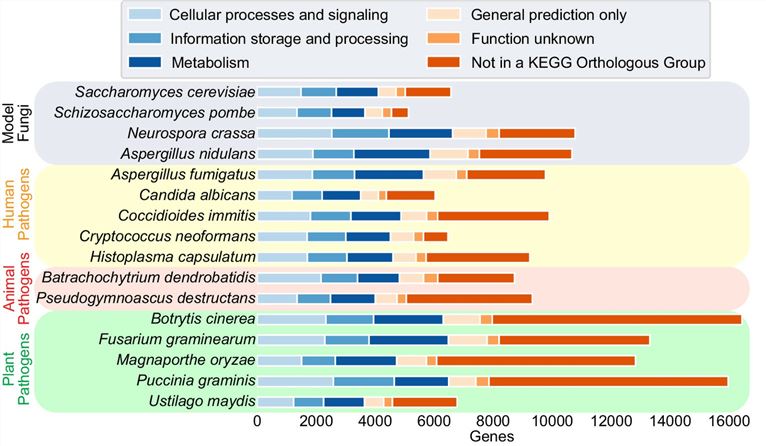Our cutting-edge sequencing technology platform enables a more rapid approach to mushroom gene function characterization. Lifeasible offers mushroom functional genomics services based on gene function and expression through proven gene cloning and transgenic technologies that allow editing and modification of functional genes in the genome, leading to the progressive artificial transformation of edible mushrooms.
Introduction to Mushroom Functional Genomics
Mushrooms are widely grown for their rich nutrition and flavor, and many of their metabolites have beneficial effects, such as medicinal effects on tumors and chronic diseases. However, the lack of genomic information has hindered further molecular studies of this fungus. Coprinopsis cinerea, a model tamer species, is commonly used to study ascomycete development and has been screened for functional genes that regulate ascomycete development. Advances in sequencing technology have allowed for more rapid methods of gene function characterization. They can reveal the dissection of genetic pathways involved in these biological processes, as well as the identification of some novel promoters. To characterize these genes, it is essential to establish and validate their function in vivo.
 Fig. 1. The function of many fungal genes is unknown. (Li H, et al., 2018)
Fig. 1. The function of many fungal genes is unknown. (Li H, et al., 2018)
Services
Lifeasible offers high-throughput mushroom functional genomics services to edit and modify functional genes in the mushroom genome to support your mushroom artificial transformation projects. Our strategies include the following.
- Mushroom Gene Cloning Strategies
Gene cloning is the most fundamental technique used in genomic analysis. We provide professional mushroom gene cloning and expression services by using RT-PCR to obtain the sequence of target genes and introduce them into recipient cells to study the expression and function at different developmental stages. The results can guide screening genetically engineered strains of target genes in mushrooms.
- Transgenic Strategies for Mushrooms
We offer emerging gene editing technologies to perform targeted modifications of genes, such as modifications or knockouts, according to the user's needs. Next, our experts introduce gene fragments with certain characteristics into the mushroom for expression, and the mushroom acquires new characteristics based on the original genetic traits. This strategy helps the future molecular breeding of mushrooms with non-transgenic cultivated strains.
High-Throughput Genome Editing Process for Mushrooms
- Vector construction.
- Gene transformation.
- Fluorescence transient assay of a green fluorescent protein.
- Luciferase assay.
- Isolation of genome-edited mushroom strains.
- Deep sequencing analysis.
Using these two strategies, our experts can help you to obtain improved varieties of a wide range of mushrooms. Our services can accelerate not only the functional genetics of mushrooms but also the molecular breeding research of various edible mushrooms. If you are interested in our services, please contact us.
Reference
- Li H, Wu S, Ma X, et al. (2018) The genome sequences of 90 mushrooms[J]. Scientific reports. 8(1): 9982.
For research or industrial raw materials, not for personal medical use!


 Fig. 1. The function of many fungal genes is unknown. (Li H, et al., 2018)
Fig. 1. The function of many fungal genes is unknown. (Li H, et al., 2018)